General Insurance Blogs, Articles & Updates by - Magma HDI
Have us call you
- RENEW YOUR POLICY
- BUY NEW POLICY

What is glamping? Where in India can you experience it
What is the first image that comes to your mind when you hear of outdoor adventures? The most popular thought associated with the idea is likely to be camping, an offbeat experience that tastefully connects nature and adventure.
Camping is a solo or group adventure popularised by the West that involves outdoor overnight stays in unfamiliar terrains to enjoy the beauty of untouched nature. While it is an experience like no other, camping does involve a lot of effort and adjustment to make the stay enjoyable.
Camping has always been a top choice for avid travellers and adventure enthusiasts, but a new activity that interests everyone is glamping. It is a perfect introduction to camping that brings together luxury to the wilderness, making the experience pleasant and more premium.
Read on to find all about the trending activity, where you can find glamping sites in India, and whether it is covered under general insurance plans.
What is glamping?
If you need a break from your hectic life and wish to explore the wild without putting in too much effort, glamping is the ideal outdoor activity for you. It is a simple mix of glamour and camping. Depending on your budget, you can opt for a high-end camping stay set amidst a picturesque outdoor setting.
Are there any risks associated with glamping?
When you look past the glamour, there are several risks associated with glamping, just like camping. You may damage your property or glamping equipment, lose your luggage or face health issues on the trip. We strongly advise you to contact your insurance provider to confirm what damages are covered in your general insurance plan and clarify your queries to ensure that you have a cover to bank on in case of any unfortunate incidents.
Best locations in India to experience glamping:
Glamping is an activity that garners the interest of young and old alike. But where exactly in India can you enjoy this adventure? Here are the best locations for a quick glamping trip.
1. Jaisalmer:
Also known as Golden City, the city in Rajasthan with expansive deserts is an excellent place to go glamping. With luxury camps pitched in the desert, it makes for an experience like no other. Glamping companies also tie up with other entertainment providers to provide sightseeing and local experiences as a part of the package, making the trip worth the price.
2. Ladakh:
Ladakh makes for an exquisite glamping location. You can enjoy the rustic beauty of Ladakh from your luxurious tents without making any compromises. Although placed in the middle of nowhere, the tents have all the amenities to make your trip comfortable and enjoyable.
3. Goa:
The popular tourist destination for a quick getaway is unsurprisingly great for glamping. With beaches, moderate temperatures, and top-notch entertainment, Goa is the best place to kick back and relax. While there are several luxury tent providers, you can decide to have a minimalistic glamping trip by using your car as your tent.
4. Kerala:
Kerala's pleasant temperature, idyllic scenery, and slow pace of life set a great mood for glamping trips. The vast range of biodiversity in the state provides an opportunity to engage in activities like trekking, sightseeing, and boating. Known for its hospitality, you will have a relaxing glamping trip in Kerala.
5. Darjeeling:
Sprawling tea estates, widespread greenery, and long trails in the thickets of the forest make Darjeeling an exotic vacation hotspot. A glamping trip in Darjeeling is peaceful and gives time to reflect and escape the everyday bustle of life.
The topographic diversity of India makes most regions great for glamping. Based on your preferences, you can escape the mundane activities of life and take a quick trip to a coast side, hill, or desert and enjoy a rustic break.
Irrespective of the location, safety is a factor that must always be considered while planning for a trip. Investing in safety means investing in happiness. The best way to do so is by ensuring that you and your fellow travellers have general insurance plans that cover any potential accidents.
Click HERE to buy the best general insurance plans to make your glamping trip safe and more enjoyable.
Disclaimer: The information provided above is for illustrative purposes only. To get more details, please refer to policy wordings and prospectus before purchasing a policy.
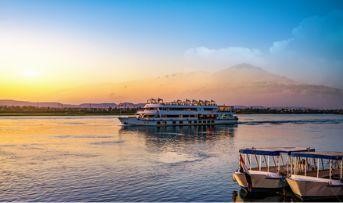
Here is the list of must-try vacation cruises in India for an offbeat experience
River cruises are one of the best ways to explore the country's backwaters and serene pockets with a mesmerising experience. Although it makes for an offbeat vacation, you will carry a bag full of memories on your way home. If you are into nature photography, this vacation will be a haven for you.
From the lush green surroundings of Kerala to the unexplored islands of Andaman, there's a lot to explore and discover as you go on your river cruise.
*Pro-tip
It is advisable to stay safe and secure in your journey, as you'll always be amidst waters. Buy an insurance policy online before you embark on your journey.
Let us walk you through all the possible travel destinations available via river and sea cruises in India.
1. Sunderbans:
Located in West Bengal, Sundarbans form the largest mangrove forest in the world. It is not only large in terms of area but also very captivating as the river cruise takes you through the pleasant delta of the river Brahmaputra. You'll be bestowed with the most picturesque landscapes when you undertake this journey. You're likely to spot numerous flora and fauna as you explore the waters of Brahmaputra. You're likely to spot monkeys, crocodiles, leopards, wild hogs, kingfishers, and Bengal tigers, among others.
2. Kerala:
The river cruises serve as one of the most exciting ways to explore the heart of Kerala. Being a state that is blessed with lush green surroundings and pristine backwaters, Kerala is a haven for nature lovers. While on a backwater cruise, you will feel closer to nature. You will also get a chance to look closely at the state's influential culture. The cruise guarantees you the journey of a lifetime. You can enjoy the fantastic surroundings of Kerala in comfort, luxury, and space. You will also be able to try authentic South Indian food on the cruise.
3. Goa:
There are many ways to enjoy Goa's fun and frolic life, but you must've never thought about spending time on a river cruise. Goa is bestowed with the beautiful Mandovi River, which can be an ideal place for a river cruise. The atmosphere on the cruise is always upbeat and lively. While you immerse yourself in Goan delicacies, you'll be presented with the scenic landscapes of Goa. It is a joy in itself.
4. Andaman and Nicobar Islands:
Andaman and Nicobar Islands is one of India's most stunning places to visit, allowing tourists to explore the unknown. The sea cruises of the islands are grand, elegant, and classy in every possible way. You will be bestowed with naturally green, serene, and exciting surroundings. Apart from that, the cruise is also well-adapted to fulfil all your needs. The amenities present on the cruise are world-class and adapted to the varied tastes of travellers.
5. Assam:
North-east India is a hidden gem of the country blessed with breathtaking views. The Brahmaputra River runs far and wide in this area, allowing tourists to explore it on a river cruise. A river cruise will open doors to several scenic locations like Kaziranga National Park, Majuli, and Guwahati. It is one of the best ways to bask in the glory of Assam.
Vacation cruises are one of the most delightful ways to explore India. It will allow you to look at the surroundings closely and collect lifetime memories. However, it is suggested that you always ensure your safety before setting out on a journey. Buy insurance policy online while booking your tickets, and be rest assured of your belongings and travel safety.
Click HERE to buy insurance policy online.
Disclaimer: The information provided above is for illustrative purposes only. To get more details, please refer to policy wordings and prospectus before purchasing a policy.

Try out these five adventure sports to energise employees and team building
Do you often hear your employees nagging about how team-building activities are childish? Then, it's high time to drop the regular events and gear up for jaw-dropping adventures.
The whole point behind organising these events is to make the team creative and shed light on aspects like leadership, etc. This is the best way to energise the team and find great leaders. The more stress-free the environment is, the more productive the employee will be.
Often, excruciating projects affect the creative perspective of the team. Engaging in sports will cultivate mindfulness and creativity. Stay tuned till the end, and strike down boring ping-pong tables, regular parties, hackathons, etc., because we've got something interesting!
Still not convinced? Take a look at this blog; we will cover some of the mind wrecking adventures.
1. River rafting adventure:
For an exhilarating day, river rafting is highly advised. Water games always tend to be an ideal release of stress. The interpersonal relationships make the river rafting adventure fun and leave memories that last forever. This helps to build trust among the group where all team members in the raft paddle in coordination and motivate each other to put in their best efforts.
2. Paintball army:
Adventure sports are the thrills most people want to taste once in their lifetime. And this is the one that brings out the adventure seeker and the curious kid in everyone. All you need to do is make separate army troops and establish a real-life war zone.
And before you know it, you can build a strategic thinking and warrior mindset. The very fabric of teamwork is what makes the team win over here. Get ready to take charge of the paintballs, hunt down your targets, and spend a thrilling day enjoying yourself.
3. Get the adrenaline pump:
Would you drop down the chance if allowed to go on a group cycling in difficult terrain? Sounds exciting, isn't it? Rock climbing, paragliding, trekking, and many others are hands down amazing mental and physical puzzles. This develops the risk-taking mindset and gives employees a much-needed break from their work routine. Pick spots that offer these adventure sports and plan a day out to savour nature's unparalleled beauty along with the intensity of heart-throbbing adventures.
4. Turf tournaments:
Every person brings a different competitive edge to the table. As an employer, you need to set a perfect environment without fear of failure. Nothing other than a game of soccer or cricket can manage to build teamwork. Suppose you have 30 employees; you can create 5 to 6 teams and play an internal tournament on turf pitches. Everyone will strive to bring home victory by focusing on one common goal by keeping sportsmanship as their priority. In this process, they will realise their strengths and build a mindset of understanding each other. So, naturally, instead of performing well individually, they will accomplish tasks working together
5. Escape room:
Here's the last one on the list. While it may not be an outdoor game, it's hands down the best pick to escape real-world problems. Picture this: Getting tossed into a room with challenges sounds exciting. And remember, all of this while the clock ticks off. When this is done with the entire team, it enhances collaborative leadership and strategic thinking.
These adventures are not just a medium of entertainment but also a useful resource to energise the employees and encourage them to perform tasks in unity. Rewarding your employees with such exciting breaks once in a while makes them feel valued and allows them to indulge in less mundane and more enthusiastic activities.
But remember that any adventure is enjoyable only when safety is assured. Accidents come uninvited, but a comprehensive personal accident plan can make up for the damages done to an individual due to a mishap and compensate for it without the policyholder worrying about the finances. You may seek affordable health insurance plans to get comprehensive coverage against mishaps. This way, you can focus on enjoying the adventures with happiness and vigour.
Click HERE to buy affordable health insurance plans.
Disclaimer: The information provided above is for illustrative purposes only. To get more details, please refer to policy wordings and prospectus before purchasing a policy.

Did you know these secret tips to get a window seat on a flight
The majority of air passengers are constantly searching for window seats while flying. While some travellers curl up in the corner and have a good snooze, others choose window seats to take in the clouds and the gorgeous views from the little window. Although the justifications vary from passenger to passenger, everyone still enjoys sitting by the window.
Additionally, one may lean the resting head against the sidewall of the aircraft to provide additional support for sleeping. Comfort is undoubtedly greater with a window seat.
Listed below are some tips for securing a window seat when flying.
1. Request at the check-in desk:
When you get your boarding card, check with the check-in counter staff to see if a window seat is available. The airline staff will accommodate you. Alternatively, check-in at a self-service kiosk and verify the flight's seat availability before printing your boarding card. Select a window seat if one is offered.
2. The cancelled tickets are very beneficial:
If you haven't chosen a seat yet, you may check it at the airport on the day of travel. You can find a seat because some passengers cancel their reservations at the last moment, which allows you to grab your ideal window seat.
3. In the absence of a window seat:
Don't be dismayed if all of the window seats are already taken. Most airlines allow customers to keep managing their reservations. If a window seat becomes available at a later time, you have the chance to switch to the window seat.
4. Consult the boarding gate agents:
You must exercise extreme patience to complete the following hack. Arrive at the airport early and contact the gate agent. Inform them that you would prefer a window seat and ask if they could assist you. The crew and gate officials often ignore that passengers have failed to board the plane until it is too late. If any window seats become available, these people can assist you in obtaining them.
5. When you book, pick your seat:
Most airline websites and booking tools allow you to select a seat when you make your reservation. The majority of the time, this procedure is cost-free. However, certain airlines charge more for reserved seats. When the time for your journey draws near, and you still can't find a seat you want, recheck your reservation to see if anything has changed since then. If you're unsatisfied with your online choices, give them another shot at the airport, either at check-in or at the gate.
6. Once boarding is done:
Wait until the plane doors are shut if you still can't get your preferred seat. You can move to a vacant window seat. Nevertheless, before settling into an empty seat, ask a flight attendant.
7. Ask a passenger for assistance:
Asking another passenger to switch seats with you is not harmful. They probably will be okay with it if they plan to nap during the flight. Manifest a strong desire to sit in a window seat. The other individual will accommodate you if they believe this is your first flight.
Before you pay for your ticket, if it was purchased through a travel agency or over the phone, ask for a window seat. Or, obtain your favourite seat by completing the online checkin process. Also, one must have general insurance coverage while travelling, and getting one may be done quickly and easily online by following a few simple steps. Buy insurance policy online and secure your travel and ensure yourself a happy journey.
Click HERE to buy insurance policy online.
Disclaimer: The information provided above is for illustrative purposes only. To get more details, please refer to policy wordings and prospectus before purchasing a policy.
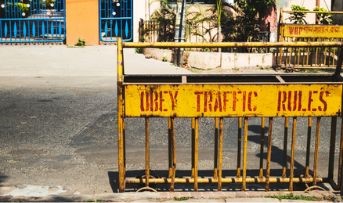
Here is the list of lesser-known traffic violations that you must be aware of
The strict implication of rules and regulations in a densely populated nation like India is required to maintain law, order, and discipline. Several rules have been laid down over time and are also ever-changing, with constant reforms.
But, due to the lack of awareness of the existing traffic rules, most people suffer losses in terms of fines on the road. When you end up paying fines on the road, you're causing a financial and ethical loss to yourself. It can be easily avoided if you have a better knowledge of the country's traffic rules.
If you lag in keeping up with traffic rules and regulations, then you'll benefit from this article. Regardless, we suggest you stay up-to-date with your insurance so that your vehicle does not undergo any damage. Book your calendar in advance for your car insurance renewal so that you don't have to face the discontinuity of your policy.
Further, we will highlight some of the country's lesser-known traffic rules. They will help you save up on fines and stay informed while driving on Indian roads.
List of some lesser-known traffic violations in the country:
1. You violate traffic rules if you have tinted glasses on your car, truck, or van. You are entitled to a fine of INR 100 or more, and your licence can also be suspended. Various State Governments first ordered the removal of tinted glasses. The rule is extremely strict, and it does not spare anyone.
2. All the big cities like Delhi, Mumbai, and Bangalore have a rule of mandatory silencers in all vehicles. If your vehicle does not have a silencer, you are likely to pay a fine of about INR 10,000. This has been done to keep the noise pollution levels in check.
3. If you use high-beam headlights at night, you are likely to pay a fine of INR 500. It is done keeping in account the increasing number of road accidents due to the use of high-beam headlights at night. It is considered extremely dangerous. On the contrary, if you are found driving without headlights at night, you also have to pay the penalty for it. Ironical yet true!
4. Smoking inside the car is prohibited in India. If you're found guilty of this, you'll have to pay a fine of up to INR 500 for the same. The act of smoking is harmful to the driver as well as the co-passengers.
5. In most metro cities like Kolkata and Chennai, it is necessary to have a first aid kit in your vehicle at all times. Failure to produce one upon inspection can result in a fine. It was done to ensure the safety of the driver and the vehicle's passengers. It is also mandatory to follow this in the case of new vehicles.
6. The use of pressure horns is liable to be fined in India. If you have installed a pressure horn in your vehicle, you might have to pay a fine of about INR 1,000 or more if stopped by the police.
All drivers in India must remember these lesser-known traffic rules when they hit the road. It will save a lot of time, effort, and money. Further, it will ensure your safety and prevent you from getting in trouble. It is crucial to abide by the traffic rules and encourage others to do so. Keep all your documents up-to-date and handy, especially the PUC and car insurance. You should never miss out on your car insurance renewal. Take charge of your role as a responsible driver.
Click HERE to get car insurance renewal done instantly.
Disclaimer: The information provided above is for illustrative purposes only. To get more details, please refer to policy wordings and prospectus before purchasing a policy.

Travelling solo in the car? Here are eleven safety tips for long distance driving
Nothing beats the peaceful enjoyment of a long solo drive. With the weather being nice and pleasing, it is the perfect time to plan a solo car trip to detox from the busy lifestyle and the city hustle.
But with the fun aspects of solo trips, it is also true that solo travelling is somewhat unsafe since you are going long distances all by yourself. It is crucial to acknowledge the perks of car insurance India can be beneficial during emergencies.
So, to make your travelling experience more enjoyable, here we have eleven safety tips for long-distance driving.
1. Remember to take frequent breaks:
A long drive can be entertaining but also exhausting. So, remember to take breaks from driving, get out of the car, stretch out your muscles, have quick snacks, and hydrate yourself.
2. Be careful with your luggage and cash:
When you're on a solo trip, you are basically on your own with the security of your belongings and valuables. Make sure you lock your car when you move out for a refreshing walk.
3. Interact with the local people:
Local people are the best way to know more about the place you are travelling to. Be kind and interact with the locals so they can help you have a safe journey while making your trip more memorable.
4. Have good knowledge of the policy of car insurance India:
Danger never comes with warnings. So always ensure that you cover your car under a legal insurance policy.
5. Be safe with your routes, but don't be afraid to explore:
When you're on a solo trip by car, you always have to be extra careful with the route you're taking for your adventure. While it is necessary to remain safe, don't be afraid to explore the local attractions of the places you travel and enjoy their authenticity.
6. Prepare yourself for anything unfortunate:
While travelling solo, you should always be prepared for the worst. Always carry pepper spray and/or a safety knife with you. Cases of solo travellers being attacked are common, especially in isolated places. Try staying in places where the network is working, so you can always contact the emergency services if you need to.
7. Educate yourself with the basic knowledge of the regional language:
If your destination has a predominant language, it is best to learn some basic phrases in their language so the local people can help you out in case you need them. Simple phrases like greetings, help requests, etc., should be in your vocabulary for a safe travelling experience.
8. Don't blindly trust strangers:
The age-old advice of not trusting strangers is a legitimate one. You can never predict people's true intentions, so while it is good to be nice in general, don't trust everyone you meet on your trip.
9. Don't eat or drink from unverified sources:
Being on a solo trip to foreign destinations will require you to be properly informed and careful with everything the place offers. So, for the sake of your safety, do not eat or drink from places that seem suspicious or unhygienic.
10. Follow a modest dress code:
While it may not be an issue in some places, it is always important to dress modestly if you plan to go on a solo trip somewhere unknown.
11. Have your entertainment sources with you:
While solo car travelling adventures are always fun, things can quickly get boring. So have a playlist of your favourite music to groove and enjoy your trip even more. Books and magazines are also a great way to entertain yourself during breaks.
We hope your solo travelling adventure is refreshing, entertaining, and safe. Prepare a quick checklist and note down all the crucial tasks to make your trip convenient. Start with taking your car for servicing. Pack light, do not stuff your bag with unnecessary things, and most importantly, carry a first-aid kit. Have all the required documents like driving licence, PUC, car insurance India, etc., handy with you. Keep these tips in mind for a better experience, and lastly, have a safe journey!
Click HERE to buy car insurance India.
Disclaimer: The information provided above is for illustrative purposes only. To get more details, please refer to policy wordings and prospectus before purchasing a policy.

Here’s the complete guide on efficient car parking
If you are somebody who has a car, you already know how helpful and convenient it can be. It will help you get anywhere within a short time effectively. Not just that, you should know how to park your car correctly to keep it safe and protected.
However, many people worldwide find it intimidating to park a car correctly. If you are somebody who does not know how to park and always finds it challenging to have proper judgement, look closely here at a few tips to help you park your vehicle perfectly.
1. Find an appropriate space:
The first thing you need to do when parking your car is to look for the best space in the parking lot or area. You should keep in mind that the place you are choosing must be big enough to fit your car so pay attention to that. You may also notice the movement area to ensure you can get in and out of the space without difficulty. This will help you keep your vehicle safe.
2. Check your surroundings:
The second thing you need to do when parking your car is look at the mirrors on both sides to check your surroundings appropriately. Carefully figure out if there is any person or car behind or around your vehicle, regardless of whether you are reversing or parking. Checking allows you to ensure nobody is getting hurt in any way. As a result, it is one of the most vital tips that will help you park without further challenges.
3. Position the vehicle appropriately:
The third thing you may do to park your car efficiently is to position your vehicle accordingly. An ideal angle will make it convenient for you to put your car in the spot in a short period. Not just that, it will ensure your car is safe from scratches and dents.
4. Keep enough space on the side:
The last thing you can do to park your car safely is to keep enough space on both sides. This factor will help you open and close your door without hitting any object or person. It will also make it convenient for you to get in and out of your vehicle without the hassle. It also reduces the chances of accidents by a wide margin.
Although parking may sometimes be challenging, you can do it effortlessly with the help of these tips. You should read them thoroughly to acquire the best guidance into the matter. You may also speak to a driving school if you want to obtain more information or practice before using them on your car.
Parking your car appropriately is crucial, and a skill, especially in crowded places where finding the right spot and making your way to park the car may seem like a mission. Perfect car parking can keep your car protected from accidents, thefts, and getting towed while you are away doing your work or shopping. On a safer side, you may prefer parking your car in the dedicated or private parking lots in the malls or public areas with a pay-and-park system. You should also buy online car insurance for additional protection from untimely and severe mishaps that can cost you a fortune.
Click HERE to buy online car insurance.
Disclaimer: The information provided above is for illustrative purposes only. To get more details, please refer to policy wordings and prospectus before purchasing a policy.
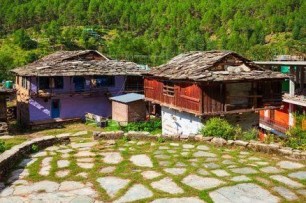
These village tours in India will melt your hearts with immersive experiences
India is a country with diverse topography, culture, and people. Since the urbanisation boom, most of our population has shifted from villages to cities in search of opportunities and better lives.
Recent trends indicate a welcome change as the increasing number of people are opting for village tours to experience rural life in stark contrast to the everyday bustle of the cities. These village tours help support the rural economy and boost tourism.
The unparalleled experiences in remote villages are an experience like no other. These tours provide a glance at everyday village life, including the local cultures, food, and lifestyle. These experiences can significantly change the way we perceive life.
What to expect from village tours?
Village tours are a great way to get an idea of what village life looks like for a short period. It is an immersive experience where you can interact with villagers and be amongst the common folk. You can feel the sense of community engagement while enjoying the pristine rural background.
Some tours also provide a luxurious experience through well-built camps equipped with all the requisite amenities. However, as you are stepping into a lifestyle unknown to you, it is best to be prudent and insure yourself and your fellow travellers. If you do not yet have a travel insurance policy, you can consider purchasing online general insurance that covers accidental mishaps.
Following are some of the best villages tours in India;
1. Kutch:
The white desert in Gujarat is home to several villages where they continue to preserve and exhibit their traditions, culture, and handicrafts. While the desert has plenty to explore, the villages provide an opportunity to live in clusters of mud huts and engage in the daily activities of the Kutchi people.
2. Punjab:
Punjab is an ideal place to experience village life. With a majority of people engaged in agriculture and allied activities, the hospitable villagers of Punjab are great hosts for facilitating this experience. One can experience tractor rides, farming activities based on the season, and learn more about their culture. All of this can be done in vast fields with clear skies in the backdrop- how much better can it get?
3. Wayanad:
The district at an altitude is home to some of the oldest tribal villages. The North Kerala cuisine, coffee plantations, bamboo handicrafts, and workshops are highlights of visiting the villages of Wayanad. Depending on the season, you can try your hand at working in the vast plantain orchards and coconut plantations.
4. Spiti Valley:
Spiti Valley is a cold desert in Himachal Pradesh with small villages spread over the region. Although the villages are sparsely populated and very remote, they provide a unique experience. The unfamiliar surroundings in the mountains may seem cold, but the warmth of the people makes up for it.
The locals are excellent guides to take you sightseeing and can help make the most of your trip while bonding with your hosts.
5. Sunderbans:
Known for being the land native to the Royal Bengal Tiger and swampy marshlands, several villages are located in the Sunderbans. Walks in the villages, exploring the mangroves, and basking in the humid climate are what your days would look like on a village tour to Sunderbans.
Irrespective of the village you choose to explore, you will be greeted by enthusiastic and hospitable hosts who will do their utmost to make your stay enjoyable and comfortable. Your hosts will ensure to engage you in a trip that will leave you feeling like you're amongst them without missing out on any luxuries or facing any inconveniences.
Our only tip to you before you book your trip would be to look into the terrain and climate and pack accordingly. Be aware of the risks associated with the area you're visiting and ensure that your insurance covers the same. If not, you can always buy online general insurance that can keep you protected at all times.
Click HERE to buy online general insurance plan.
Disclaimer: The information provided above is for illustrative purposes only. To get more details, please refer to policy wordings and prospectus before purchasing a policy.

Did you know the role of a motorcycle choke
Have you ever attempted to start a cold engine? It will be challenging to start carbureted engines like those found in motorcycles. Choking will play a crucial part in this. A motorcycle choke can act as an excellent tool and a saviour in a situation where you struggle to start your bike by the conventional method.
Let’s understand how choke functions and how you can use it optimally.
What is a motorcycle choke?
The choke is a crucial component of bikes with carburetors. The air-fuel mixture is composed and fed to the engine mechanically or manually in motorcycles with carburetors through the choke.
A motorcycle choke is basically a pulling lever fastened to the carburetor. It can be mounted on the front panel, the handlebar, or both, but it remains connected to the carburetor via a cable. Wherever the lever is positioned, it instantly operates a carburetor valve and the entire choke assembly.
Role of a motorcycle choke.
Pulling the choke lever out to start a cold engine was once considered necessary, especially in the morning. You might not need it as regularly during summer, but in winter, it is occasionally required to lift the lever each time the engine starts. The choke lever increases the fuel ratio in the air-fuel combination immediately.
In a carburetor, the choke lever opens or closes a valve or gate to regulate the air or fuel that goes into the mixture. This aids the engine in gaining enough power to make the bike ready to use.
The choke's failure warning signs.
Several typical indications of a failing choke are listed below:
● Difficult start
● Excessive smoke produced after the engine has started
● The engine stalls after starting
Even though the choke is working, if the engine is difficult to start, there may be a problem. Either the choke is not closing all the way, or the fuel is being cut off. Check if the choke opens and closes effectively because excessive fuel utilisation is another effect of a broken choke.
Excessive fuel use will also result in smoke from the exhaust pipe. The engine's continued operation demonstrates the choke's effectiveness when engaged. The linkage could be incompatible if the choke is not working correctly.
How can choke longevity be guaranteed?
The constant usage of the choke can result in its wear and tear over time. The choke wire may also become ineffective if it is not used frequently.
To ensure longevity, keep the following in mind:
1. Access the area where the cable attaches to the choke plate.
2. Spray the cable and open the choke to get the lubrication into the joint. If done repeatedly, it increases the choke's lifespan.
3. Keep the air filter and carburetor clean to avoid pressure on the engine. You can use spray cleaners to help if you do not feel like removing the carburetor and cleaning it.
The choke requires low maintenance but might deteriorate more quickly if used frequently. Pay attention to how the engine starts and idles because it may indicate a choke issue. Make sure to empty the fuel from the motorcycle before putting it away for the winter to avoid clogging the fuel system.
When the engine is cold, it is more challenging to burn fuel. The choke enables the supply of an ideal air-fuel mixture that results in combustion and aids the bike's engine in drawing power. To avoid unexpected repair expenses to vent your pocket, invest in reliable insurance from the best motor insurance company in India.
Click HERE to buy insurance from the best motor insurance company in India.
Disclaimer: The information provided above is for illustrative purposes only. To get more details, please refer to policy wordings and prospectus before purchasing a policy.
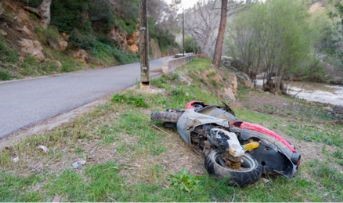
Here's everything you need to know if your motorcycle falls over
A two-wheeler provides many conveniences and advantages, particularly in terms of time savings. Two-wheelers are becoming increasingly popular as a form of transportation, mainly in urban areas where traffic congestion is the main issue. However, two wheelers are also more inclined to accidents.
If you encounter an accident while riding, make sure to check yourself and your fellow passengers before moving on to the next step. Look for any indications of pain in your body. Check your accessories to see what body parts have touched the ground. You may have been hit in one or more of these body parts if your jacket, pants, shoes, gloves, or helmet have any sign of damage. Before determining the motorcycle's condition, check your physical health.
Sometimes it's impossible to stand the bike back up, and you need assistance. It might have fallen in an odd place, or maybe it's too heavy. Yet again, it's a huge, hefty piece of equipment, so don't feel guilty asking for help.
Make sure it is safe to ride by giving it a quick inspection. Here is the checklist you can follow to know about the damage done.
● Check the fluid levels even if you cannot see anything under the spot where the bike fell over. It might be a case of the coolant splashing out of the reservoir, or the braking fluid reservoir cap coming off. Do not ride the bike if the brake fluid reservoir has air in it, the fluid level is low, or it is leaking. The consequences of having air in your brake lines go far beyond simply dropping your bike.
● Inspect your handlebar and ensure the clutch and brake cables didn't break or bend in a way that will make the bike unsafe. Confirm the foot pedal controls in the same way, assuring the shifter isn't jammed and the rear brake pedal isn't locked or jammed.
● Ensure that the motorcycle starts! Some motorcycles include tip-over sensors, which won't immediately turn back. This can usually be resolved by turning the key on and off.
● If you have a bike with carburettors, the fuel may have leaked out, and you will need to give it a few revolutions to get the gas back into the system.
● The main cause of a motorcycle that won't start after tipping over could be a problem with the gasoline supply, such as too much petrol spilling into the engine cylinders. A broken internal switch or a disconnect in the electronics due to the crash could be present in the motorcycle.
● Sometimes too much fuel from the carburettor might be pumped into the engine cylinders when a motorcycle is knocked over.
● The spark plug's contacts may become wet from the gasoline if too much fuel is put into the cylinders, preventing it from sparking.
A motorcycle has numerous connections that must all work together to turn over. The connection to the battery is one of the most crucial. Over the period, the connection created on a battery becomes brittle because of the rust on it. So, inspect the battery for any faults or loose connections, and once this is fixed, you can start your bike.
Even though a two-wheeler has many advantages, it has a unique set of risks. For starters, the possibility of a surprise collision increases the risk of both the rider and the pillion rider suffering injuries and potential two-wheeler damage. This may result in increased financial hardship.
This then makes sense to buy bike insurance online to avoid adding extra expenses to your budget if something unfortunate happens to your motorcycle. Also, ensure that you have the safety gear and important documents handy before planning your trip. Making the right purchase will handcraft you a safer and more immersive riding experience!
Click HERE to buy bike insurance online.
Disclaimer: The information provided above is for illustrative purposes only. To get more details, please refer to policy wordings and prospectus before purchasing a policy.

The perks of buying group health insurance for employees
A group health insurance plan for employees is a group mediclaim plan purchased by a company for all its employees. The employees get basic coverage against common ailments and treatments. The employers usually deduct a certain sum from the CTC of the employees to pay for the premium of the policy. Also, they may decide to either share the premium burden or pay it fully themselves.
This trend of insuring employees' health and well-being has been followed for a long time. It establishes a bond of trust and responsibility the company takes for its employees. But how exactly is group health insurance beneficial? Here are the perks of buying a group health insurance policy for employees.
1. Cost efficient:
Since such policies are bought to cover many people, insurance companies provide them at a good discount. If the employer buys the same number of health insurance plans individually for his employees, it will cost him much more.
2. Motivation booster:
A group health insurance policy is a symbol of the care and concern of an employer for his employees. The employees feel valued that the employer is taking care of them. This acts as a motivation, and they work in a more dedicated and devoted manner towards the company. Also, such policies act as a retention tool. Employees think twice before changing jobs since they feel attached to the employer and the company.
3. Zero waiting period for pre-existing diseases:
A regular health insurance policy provides coverage for pre-existing diseases after 3- 4 years of buying the policy. However, there is no waiting period for the coverage of certain pre-existing diseases, such as diabetes, hypertension, etc., under a group health insurance plan. Employees get full coverage for any possible medical expenditure from day one.
4. Preferential treatment:
The buyers of group health insurance policies are big customers for the insurance companies. Hence, the insurance companies cannot afford to annoy them and have to deal with them as a priority. The employees get preferential treatment at the time of passing of claims.
5. Maternity coverage:
Regular health insurance plans usually do not provide maternity coverage and assistance. However, a group health insurance plan comes with automatic maternity coverage. The newborn child also gets automatic protection under the policy as a dependent after 90 days of birth.
6. Full family cover:
The group insurance plans provide health insurance benefits for the employee and his family. He can avail of the benefits for up to 5 dependents at no extra cost. Family-floater plans under regular policies charge much higher premiums for providing similar coverage.
7. Premium as a business expense:
An employer who pays the premium for a group health insurance policy for his employees can claim it as a business expense. It is treated as a benefit that he is providing to his employees. He can book the expenses in the profit and loss account like a general business expense and save on taxes.
8. Validity of the policy:
As per the IRDAI, an employee can migrate to an individual health insurance policy from a group health insurance plan while leaving or changing his job. He will have to complete some formalities with the insurance company for the same. Also, this depends upon the insurance company to continue or terminate the policy.
9. No medical checkups:
Another benefit of a group health insurance plan is that it does not require any medical checkups of the employees before buying the policy. The usual health insurance plans require a medical checkup before issuing the policy.
Buying a group health insurance for employees is often a win-win situation for the employer and the employees. There are many benefits and perks of such policies, which we have already gone through above. Moreover, such a policy is compulsory for employers and mandatory by law. Choose the best health insurance company in India that takes care of your most valuable assets- your employees.
Click HERE to buy the best health insurance.
Disclaimer: The information provided above is for illustrative purposes only. To get more details, please refer to policy wordings and prospectus before purchasing a policy.
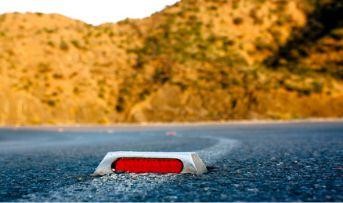
Here is everything you need to know about cat eyes reflectors on the road
Cat eyes reflectors are also known as road studs or raised pavement markers. They are safety devices installed on the roads and reflect or emit light flashes at night. You can commonly see them on roads or highways while driving. Drivers use them as lane markers to guide vehicles on dark roads.
Cat eyes reflectors reflect light to a light source, such as a car’s headlights. Hence, when driving on a dark patch of road, these reflectors reflect back light to your vehicle. This helps you to identify the sides and centre of the road and minimise the chances of a mishap.
Types of cat eyes reflectors:
There are primarily four types of cat eyes reflectors in use.
1. Plastic:
Reflectors made of plastic are the least durable and not as strong as the other types of reflectors. They are good to use on the sides of bridges and highways.
2. Aluminium:
These reflectors are made of aluminium and hence, are strong enough to withstand the load of heavy vehicles. These have reflective objects installed inside them. They are also ideal to use in the middle of the roads because of their strength and durability.
3. Glass:
You will also spot reflectors made of hardened safety glass. They come with a coating on their bottoms that reflect the light back to the source.
4. LED:
LED cat eyes reflectors are the most advanced as they have solar panels on their tops. This acts as their energy source and helps them to emit blinking light at night. They provide the brightest light and have much better visibility than the above three types of reflectors.
Advantages of cat eyes reflectors:
● Enhanced visibility:
The primary advantage of cat eyes reflectors is to make night driving safe and secure and minimise the chances of accidents. They help to make corners of traffic lanes visible at night and ensure that the drivers do not skid away from the roads, especially at dangerous curves.
● Prevent unsafe lane changing:
Cat eyes reflectors mark the lanes on the roads. This ensures that vehicles do not frequently change lanes or swerve from one lane to another, causing accidents.
● Speed control:
Cat eyes reflectors also act as a road rumbling strip. The traffic automatically slows down while passing over them since they act as barriers to speed. Thus, they help to control rash driving.
● Durable and easy to install:
These reflectors are very durable, economical, and easy to install than other lane markers. They do not come out by themselves when attached to the roads. Also, there is very little chance of their theft. Hence, they have a very long life.
● Multi-coloured:
Cat eyes reflectors are multi-coloured. While this increases their aesthetic beauty, each colour has a special meaning too. White reflectors denote lane divisions and centre marking on the roads, and red reflectors denote lines that we cannot cross. Green reflectors denote the lines we can cross, such as entrances to service lanes.
Cat eyes reflectors are excellent warning devices on roads inside cities and highways. They have a special role on highways since there are few streetlights, and vehicles run at high speeds. The governments have increased their usage in recent years. It is a step in the right direction as they enhance the safety and security of all types of vehicles plying on the roads.
Similar to cat eyes reflectors, online motor insurance takes care of our vehicles in the best way possible. Buy motor insurance online and receive the safety and security of insurance combined with the convenience of buying it right from your home or workplace without visiting the insurance office personally. Hence, it is the best form of comprehensive coverage and the most recommended one.
Click HERE to buy motor insurance online.
Disclaimer: The information provided above is for illustrative purposes only. To get more details, please refer to policy wordings and prospectus before purchasing a policy.

The lesser heard facts about health insurance policies
The Covid-19 pandemic has led to a demand for health insurance policies. People are now aware of the importance of health insurance cover in case of sudden hospitalisations and expensive treatments. Moreover, many people also opt for it to avail of tax benefits.
Let us take you through a few lesser heard facts about health insurance plans in India. This will facilitate you to make a better and informed choice if you are also planning to buy a health insurance policy for yourself and your family.
1. NRI health insurance policy:
It is now possible for a non-resident Indian (NRI) to avail of health insurance cover in India. An NRI person will have to submit residence proof along with other necessary documents. Companies use Indian parameters to ascertain the cost of the treatment and premium amount. The treatment will have to be done in India to enjoy the policy benefits.
2. Pre-existing diseases:
Yes, you can get health insurance coverage even with pre-existing diseases. The insurance company will start coverage after 36 or 48 months of buying the policy, as per the terms and conditions. You will have to disclose the ailment at the time of buying the policy; otherwise, the insurance company can reject your claim at a later date.
3. Limits:
There are sub-limits set under your policy cover for certain types of expenditure. Generally, insurance companies put a cap on room rents based on the total sum insured. For example, suppose your total policy cover is 10 lakh rupees, and the room rent has a cap of 1% of the total cover. You are eligible to spend only Rs.10000/- a day on the room rent. You will have to pay it from your pocket if it exceeds that amount.
4. Recharge of the insured amount:
Exhausted your health insurance coverage amount? No need to worry. Some insurance companies allow us to recharge or upgrade our policy cover amount! For example, suppose we have insurance coverage of 5 lakhs INR, and it gets exhausted. We can opt for the refill and reinstate the cover if we need it over the remaining tenure.
5. Daycare coverage / Maternity coverage:
Many health insurance companies have started providing cover, even for daycare procedures. The patient need not be hospitalised for over 24 hours to benefit from the cover. This has made it convenient for people undergoing procedures such as chemotherapy, dialysis, radiotherapy, etc. Similarly, some policies now provide us coverage for maternity-related expenditures as well.
6. No age restriction:
Some insurance companies have started providing health insurance coverage without restricting the insured's age. People over 65 years of age can also get health insurance coverage now. Moreover, they can also buy a family floater plan and get coverage for their spouse and other family members as well.
The policy will remain functional and valid until the insured continues to pay the premium for the policy timely. They cannot deny the coverage with the growing age of the insured.
7. Reimbursement policy:
When purchasing, we generally check the network hospitals first in our health insurance policy in India. It is believed that the policy benefits will apply only in those hospitals. This is not the case.
Coverage is valid and works even when admitted to a non-network hospital. It does not matter if it is not on the list of eligible hospitals for cashless treatment under a policy. Patients will have to settle the bill themselves at the time of discharge. The insured will get reimbursed from the insurance company at a later date after the submission of all the required documents.
One should carefully go through the terms and conditions of a policy before opting for it. You should not just get lured by a low premium amount. It may exclude coverage for certain treatments and facilities, and you may suffer later at the time of need. The benefits and coverage provided under health insurance plans in India vary from one company to another. Hence, be prudent and choose your health insurance policy wisely.
Click HERE to know more about the best health insurance plans in India.
Disclaimer: The information provided above is for illustrative purposes only. To get more details, please refer to policy wordings and prospectus before purchasing a policy.

Did you know about these cool tips to reduce online travel expenses
When we talk about travel, everyone likes to get some discounts and save money on expenses. You can save on many things, like a flight, a place to stay, food, insurance, car rental, etc. Always remember that an insurance plan is essential as it helps cover many things, like your flight getting cancelled or your baggage being stolen. Buying general insurance India is a prudent practice when planning your trip
Here are some valuable suggestions which help you reduce travel expenses, irrespective of the destination. Travel smart with our nifty tips!
1. Compare flight tickets online:
Nowadays, comparing fares of different airlines has become convenient online. You can browse a third-party site on your browser, type in your location, destination, and return trip, and instantly get the list of available airlines. Book your ticket 4 to 5 months before your departure, as booking at the last minute can be costly.
2. Try to travel by train:
Train travel is slower than air, but it can save you a lot of money. Book your train tickets online to access different options and avoid paying any commission to the agents.
3. All you need to do about your luggage:
You should know that checked-in baggage fees can add up, especially when you travel by air. Try packing a single carry-on luggage, and you can avoid wasting time checking in and picking up luggage during transit or when you land at your destination. Also, you may buy online general insurance India before your journey to cover the loss or theft of bags and avoid the fear of losing your baggage.
4. Get the best hotel deals:
Most people go for big hotel brands, which ensure a luxurious stay, but there are several charges for amenities you might never consider using during your trip. Overbooking also makes these hotels expensive and crowded.
Opting for affordable hotels that provide excellent amenities and hospitality is a smart way to save money. When planning your trip, you can research and compare the budget and facilities of different hotels through different online hotel booking portals.
5. Book activities ahead of time:
Most people mistakenly buy tickets for museum entry, park admission, and other activities on the spot or when the prices rise due to too much demand. Book tickets for such activities before you visit them and avail yourself of discounts and rewards. You can also get a group discount if you are travelling in a group.
6. Use rewards programs:
Joining rewards programs offered by airlines and hotel chains can help you snatch some fantastic deals. If you plan to visit multiple cities during your trip, book your first hotel and use your accumulated points to book the next one at another destination.
*A smart tip to save more on your transportation
When visiting a new destination, search for the available public transport in that city and book them in advance if you plan to explore the location during the busy season. Don’t be afraid to ask the locals about transportation & the best places to be & eat. This helps save money and explore the city in & out from the view of a local!
Follow these tips to plan a perfect trip without putting much strain on your pocket. Get good general insurance India that covers several things. Look for special coverage in your insurance if needed. If you smartly know how to use online resources, then you’ll successfully execute budget-friendly trips almost every time.
Click HERE to buy general insurance India
Disclaimer: The information provided above is for illustrative purposes only. To get more details, please refer to policy wordings and prospectus before purchasing a policy.
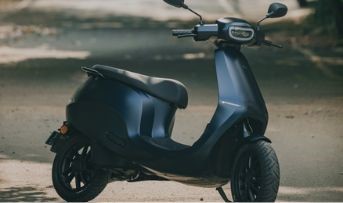
Here's all you need to know about the eligibility criteria for riding e-scooters in India
As we know, India aspires to be an all-electric nation by 2030. Electric scooters are in trend these days, and there are new rules and regulations for riding electric scooters to support this endeavour.
Vehicles that use fuel, such as petroleum, heavily contribute to carbon emissions, and to control the degradation of the environment, electric vehicles are a boon. The Govt. of India encourages new buyers to buy electric scooters and take their first step towards a green future.
But before you make a purchase, check 2 wheeler insurance online for an e-scooter, the different features of the scooter you want to buy, and see if your requirements are aligned.
Who can ride an electric scooter in India?
Most parents are searching for safer solutions for their children travelling to school or college. Bus transport provided by high schools and colleges is available, but only for some. When you think about how much other ways of getting around cost, it is neither cheap nor comfortable for students to use them every day. Public transport is usually regarded as inconvenient for students. It has led to increased use of two wheelers by students to travel with convenience and less hassle.
Central Motor Vehicles Rules of 1989 were modified to grant permission to teenagers between the ages of 16 and 18 to ride e-scooters. The eligibility criteria to legally ride an e-scooter is reduced for teenagers. Still, they are prone to accidents due to their reckless driving and inexperience. They are inconsiderate toward others on the road. It's expected that accidents are common in places where there is an issue with traffic because underage drivers usually do not know how to control a vehicle properly. They may panic in fast-paced traffic or even lose control due to slight inconveniences.
Other requirements:
The motor of the electric vehicle can be a maximum of 4 kWh. The electric scooters having a maximum speed of 20 kmph can be driven without a driving licence. A driving licence is now mandatory for electric scooters in the category of 2 wheeler-powered vehicles. These regulations are in place per the rules of India's Road and transport ministry. The Government of India has also made it compulsory to register these vehicles.
It comes off as a saviour to all the students who travel daily to schools or colleges. According to various researchers, it is safe to say that school-going children aged 16 can drive e-scooters. It is mandatory to teach and train them before they kick start their riding journey. Alongside this, having a green licence plate for such electric motor vehicles is mandatory.
Like any other two wheeler insurance, it is essential to have regular e-scooter insurance to protect it financially against any accidental loss. You should opt for bike insurance that includes essential needs and versatility too! There are many 2 wheeler insurance online options available that are safe, convenient, and affordable.
This move by the government will promote the manufacturing and production of electric scooters throughout the country. It is a breathtaking transition to promote electric vehicles and simultaneously contribute towards a better and healthier planet.
There are no other eligibility criteria except age, driving licence, and green number plate. Electric scooters of various sizes and shapes are available with different features. It allows potential riders to choose the one that they like the most. From simple-built models to full-body mopeds, electric scooters will transform especially how school-going students between the ages of 16 and 18 travel. Ensure your kids have proper driving lessons, safety gears, and 2 wheeler insurance online before they take an electric scooter out.
Click HERE to buy 2 wheeler insurance online.
Disclaimer: The information provided above is for illustrative purposes only. To get more details, please refer to policy wordings and prospectus before purchasing a policy.

The latest frequently asked questions before buying a car insurance
Do you think you find yourself mislead while purchasing car insurance? Most people lack knowledge of car insurance coverage, legal terms, and exclusions. While we understand the core concepts of it can be vague, it is essential to understand the advantages and limitations of the car insurance policy. So, the best way to get to the crux of this is to read this blog until the end.
First-time car insurance buyers have numerous questions bombarding their minds and leaving them clueless about making the right choice. In this space, we will be looking at the most frequently asked questions so that you can choose the best-suited policy.
1. Is it mandatory to take a car insurance policy in India?
Yes, it is indeed mandatory. As the days pass, we witness an alarming increase in road accidents. According to the Motor Vehicles Act, 1988, it is stated that while driving on Indian roads, it is essential to have a car insurance policy to drive legally. At the very least, you must possess a third-party car insurance policy.
2. Is it necessary to buy car insurance for old cars?
Whether old or new, you must purchase insurance for all types of cars. But the only thing that stands out when buying old car insurance is the premium amount. It is comparatively lower since the market value goes down as time passes.
3. What are various types of car insurance available in India?
At present, there are only two types of car insurance policies available. Third-party car insurance policy is most commonly in demand. It includes both third-party financial and legal liabilities that the policyholder is covered.
The second most popular, comprehensive car insurance, has more excellent coverage of damages. It is said to be the most efficient in terms of protection. The liabilities arising from vehicle damages of the driver/owner and third-party liabilities are covered.
4. What does no claim bonus mean in a car insurance policy?
Throughout the policy tenure, if a policyholder does not claim, then the respective insurance company issues an NCB (no claim bonus).
5. What are the additional covers?
To enhance protection, the insurance companies provide additional covers. These include engine protection, roadside assistance, and zero depreciation. This is entirely optional and, when chosen, needs an extra premium to be paid. Add-ons can be effective as an immunity booster for your insurance plans.
6. Do the online car insurance policy documents have the same validity?
Yes, both printed and online insurance policies have the same validity. You receive the documents through email if the policy is purchased online. You can save it or choose to download the same. Online car insurance has the massive benefit of having the freedom to purchase independently. You can directly visit insurance providers' websites and surf multiple options that suit your needs.
Technology is shaping the future of the insurance industry and is providing customers with the convenience and liberty of making purchases without the involvement of intermediaries. This significantly reduces the cost and makes the process hassle-free.
Investing in securing your assets is the intelligent choice to manage your finances and stay stress-free during emergencies. We are sure you have a basic idea of concepts in car insurance. And now, you can ask the right questions while you buy one upon your next renewal or new car insurance.
Click HERE to know more about the process of buying car insurance.
Disclaimer: The information provided above is for illustrative purposes only. To get more details, please refer to policy wordings and prospectus before purchasing a policy.

Here are the reasons why you must attend a driving school
Are you somebody who recently bought a vehicle or is planning to buy one? If your answer is yes, you already know how crucial it is to learn to drive from a professional. We live in a world where everybody is busy with their routine. As a result, learning to drive all by yourself can get overwhelming. However, it'll be better if you attend a driving school to get the best results while minimising driving risks.
These institutes will provide you with appropriate training and precise knowledge to make things more convenient. There are several schools available these days, and you may choose among any of them depending on your preferences, requirements, and budget.
Let us now take a detailed look at why you should enrol in a driving program.
1. Professional training:
One of the main reasons you should attend driving classes is that these schools will provide you with appropriate professional training. If you pick the best school, you will get access to practical and theoretical knowledge, making it convenient for you to get the best help under professional guidance.
Not just that, but they will also teach you how to drive while maintaining traffic rules effortlessly and effectively. In addition, you learn to operate in a safe environment, which significantly boosts your confidence.
2. Safe-driving practices:
The second reason you should take a driving school's help to learn more about different safe-driving practices. If you are scared of driving, this factor will help you by a wide margin.
3. Know about the different rules and regulations:
Another reason you should join a driving school is that they will teach you the rules and regulations you must follow. Not just that, but they will also help you understand more about traffic signs and what to do when you see one.
Driving schools provide their students with new and improved guidance for the best results. All of these factors will help you abide by the law and avoid violating them.
4. Driving habit improvement:
If you already know how to drive but wish to enhance your driving habits, the best thing you may do is enrol in a driving program. You will be trained by professionals to acquire the best guidance.
They will help you learn more about the different techniques and how to get out of a problematic situation on the road. This factor will also assist you in avoiding accidents and make you ready for any challenges that you might face in your day-to-day driving.
Although learning to drive is a long process, it is necessary because it helps you become a responsible driver. An efficient and reliable driving school focuses on training you on the safety aspect, knowledge of traffic signals, and helping you learn the driving rules. Before taking charge of the steering wheel, you must ensure that you prioritise all measures needed for a safe ride for you, your vehicle, and the other commuters on the road.
Fasten your seatbelt before giving the ignition, keep all required documents handy, and lastly, buy new car insurance if you don't have an existing one. Insurance is not just to avoid paying fines but, most importantly, to protect your asset with reliable coverage.
Click HERE to buy new car insurance.
Disclaimer: The information provided above is for illustrative purposes only. To get more details, please refer to policy wordings and prospectus before purchasing a policy.

Complete guide on maternity health insurance, coverage, and benefits
A maternity health insurance offers financial support for childbirth. It pays for a hospital stay for a natural birth or a C-section. The insurance covers the delivery and baby care up to a certain number of days in the hospital.
Purchasing maternity insurance online offers the following advantages:
1. Time-saving and hassle-free buy.
2. A quick-click option to compare insurance policies.
3. Online promotions like coupons, points, etc., one can save money while making a purchase.
4. There are no agent commissions because insurance companies or aggregators also sell products online directly. As a result, online maternity insurance is less expensive.
5. You can purchase the maternity insurance plan from the convenience of your home or workplace.
Terms and conditions for maternity insurance:
1. The maternity benefit will expire along with the base plan.
2. India's Insurance Regulatory and Development Authority has set rules to change the benefit amount.
3. Maternity insurance benefits are available only in India.
4. The claim will be paid out in Indian rupees.
5. There will be a set number of days of waiting before one can use maternity benefits
Add on covers for maternity insurance:
The maternity insurance itself is available as an add-on to the base plan. The basic plan is regular health insurance coverage that provides financial protection in a medical emergency. It pays for hospital bills as well as other healthcare-related costs.
Maternity health insurance eligibility requirements:
● The exit age has been set by certain insurers at 45 years of age, with the entry age being 18 years.
● Some insurance providers allow the maximum number of maternity claims for two children. If you lose something, there can be exceptions.
Required paperwork to support a maternity claim:
● ID verification and a discharge summary
● A claim form, a health insurance policy
● Pre-authorisation document for claims involving cashless payments
● Prescriptions for drugs and other products
● Any other paperwork that the insurance provider may ask
What is the procedure for filing a claim for maternity benefits?
Cashless claim:
For a cashless claim, the birth must occur in a network hospital. The insurer must be aware of the claim at admission to a network hospital. The policyholder only needs to pay a small amount toward deductibles after the claim is authorised, and nothing further is necessary. The insurance provider will handle all additional costs immediately.
Reimbursement claims:
For such claims, the policyholder is not required to receive treatment at a network hospital. You may use any hospital of the insured's choosing for delivery. To file a reimbursement claim, the policyholder must maintain a record of all relevant paperwork and invoices
Why should you purchase maternity health insurance?
1. Financial support:
In some regions of India, the cost of giving birth and having a baby can range from 50,000 to 100,000 rupees. One can assume that if a woman buys pregnancy insurance, she and her baby will have access to better medical facilities with the support of maternity health insurance.
2. Surgical deliveries are expensive:
Natural birth can be hard on both the mother and the baby, which is why a surgical or cesarean delivery is sometimes needed. In this situation, the baby is delivered by major abdominal surgery. A natural delivery is substantially less expensive than a cesarean section. The mediclaim policy with maternity coverage may pay for these expenses.
This add-on of health insurance ensures peace of mind for the parents. Once the cost of a maternity cover is offset, expecting parents may concentrate on savouring this significant life event. You can make plans for the baby's name, nursery design, baby welcome celebration, and much more with a clear head. Consider purchasing this useful and efficient add-on cover to make your parenting time more memorable and stress-free.
Click HERE to buy the health insurance policy for new parents
Disclaimer: The information provided above is for illustrative purposes only. To get more details, please refer to policy wordings and prospectus before purchasing a policy.

The best hacks to include fresh fruits and vegetables in your diet
Fresh fruits and vegetables are a rich source of vitamins and minerals and help the body to develop immunity and resistance against several chronic diseases.
You can lose weight by making fresh fruits and vegetables an integral part of your diet because they are low in calories. We can use them as a substitute for other high-calorie food. Moreover, they can be used for munching in between meals. We will not feel hungry quickly and eat the next meal lightly.
Despite so many advantages of fresh fruits and vegetables, we often avoid making them a part of our daily routine. Let us go through the best hacks that can help us include fresh fruits and vegetables in our diet without apprehension.
1. Substitute:
Substitute the unhealthy junk food on your plate with fresh fruits and vegetables. First, fill at least 10% of your plate with fresh fruits and vegetables. Increase this percentage as you develop an appetite and taste for them.
2. Top up your junk food:
Top up your junk food like burgers and pizzas with loads of fresh fruits and vegetables. We can easily add chopped vegetables to the burger stuffing. We can add loads of tomatoes, spinach, mushrooms, garlic, etc., to pizzas, toppings, and even pasta. They will taste great and especially your children will love them!
3. Be innovative:
Bring Innovation to your food preparation by adding fresh fruits in yogurt, curd, custard, and cereals. Quietly add strawberries or blueberries to muffins and pancakes, advertise them as something special to your children and see how they will gobble them. Make innovative sandwiches and omelets by putting in extra veggies.
Make meals by using something like a sweet potato. Even the children will love it, which will be a great source of carbohydrates. We do not eat large portions of vegetables such as broccoli, no matter how nutritious they are. But we can increase its intake by adding them to our soups, curry, or even pasta.
4. Clean out or hide your junk stock:
We eat what we see. This is true, especially with kids. If they find them at home, you cannot stop them from eating junk food like chips, biscuits, wafers, noodles, etc. Completely clear away your junk food cabinet so your children cannot get hold of them and be tempted to eat them. If there is no junk food at home, they will have time to develop an appetite for fresh fruits between meals. Also, they will have space for eating fresh vegetables during meals.
5. Try making new purchases:
Never shy away from trying a new fruit or vegetable that you see in a store or supermarket. Do your research before buying them. Experimenting with fruits and vegetables can surprisingly be a good adventure.
6. Start having a fruit milkshake or smoothie:
Shakes and smoothies are one of the best alternatives to consuming fruits. Start having fresh fruit juice, shake, or a smoothie of loads of fruits. You may even add a few dry fruits and nuts to enhance the taste and nourishment.
Fresh fruits and vegetables are essential for our health and fitness. The above hacks can help us to increase their intake in our diets. This will result in better health and lower your risk of developing inflammation, heart disease, diabetes, and cancer.
Just as a good diet is essential for healthy living, good health insurance is crucial for efficient management of finances involved in health management. As health insurance improves your quality of life, invest in the best health insurance in India that is tailor-made for your special needs!
Click HERE to buy the best health insurance in India best suited for your needs.
Disclaimer: The information provided above is for illustrative purposes only. To get more details, please refer to policy wordings and prospectus before purchasing a policy.

Here are the effective ways to identify and fix punctures in tubeless tyres
Tubeless tyres have been a great invention to make the lives of car owners more convenient. Despite the extra cost as compared to tube-type tyres, these make driving a lot safer by preventing the vehicle from losing balance with a sudden tyre puncture. Tubeless tyres have an air cushion between the tyre and the rim. This prevents air from rushing out of the tyre in case of puncture and allows the slow discharge of air.
With these enhanced safety features, it is not surprising that tubeless tyres are preferred over ones with a tube. But with these advantages comes the complexity of changing it when it experiences a puncture.
This blog aims to give you the information you can use to identify and fix punctures in tubeless tyre easily.
Tubeless tyres are relatively easy to fix. Spending too much money on a mechanic to fix it is not advisable. But it is important to thoroughly inspect the tyre before getting your hands dirty. This will prevent you from missing out on additional punctures that might not be visible at first glance.
Tools required:
Buy a puncture repair kit from your nearest car spare parts shop. This repair kit will include a rasper, rubber strips, and a strip insertion tool. You might also need pliers and a knife to remove any external substances stuck on the tyre. You will also need a tyre inflator to fill in the air lost.
Procedure:
The procedure is slightly more complex for the back tyres because of their inability to be steered as easily as the front ones. For the back tyres, a jack must first lift the vehicle and remove the tyre to fix it.
1. Pour some water onto the front and back tyres to locate the puncture. If it's on the front tyres, it will be enough to steer it from left to right to access any holes. However, remove the tyre if the hole is on the back tyre.
2. Use the plier to remove the sharp object that punctured the tyre.
3. Next, you need to make a smooth hole of an appropriate size to insert the rubber strip to fix the puncture. To achieve this, take the rasper (also known as a smoothening tool) to smoothen the hole created by the sharp object.
4. Leave the rasper half embedded in the tyre.
5. Some sewing tactics will be a necessity here. Carefully insert the rubber strip into the insertion tool without disturbing rasper. This will be a similar process to threading a needle.
6. Carefully extract the smoothening tool from the tyre, replace it with the rubber strip, and shove the entire length into the tyre. As this process is completed, remove the insertion tool.
7. The knife will make its appearance at this step. Carefully cut the strip that protrudes out of the tyre.
8. Use a tyre inflator to fill the air which had already escaped from the tyre. A portable tyre inflator is available online or in your nearest car parts shop.
Although it is safe to drive a vehicle with a punctured tubeless tyre for a certain distance, it's best to get it fixed as soon as possible. Driving with punctured tyres is risky and can invite unwanted trouble. Also stay protected with comprehensive insurance for your vehicle. Buy car insurance policy online and get the perks of reliable coverage that can safeguard your car against mishaps and expenses.
Click HERE to know more and buy car insurance policy online.
Disclaimer: The information provided above is for illustrative purposes only. To get more details, please refer to policy wordings and prospectus before purchasing a policy.


